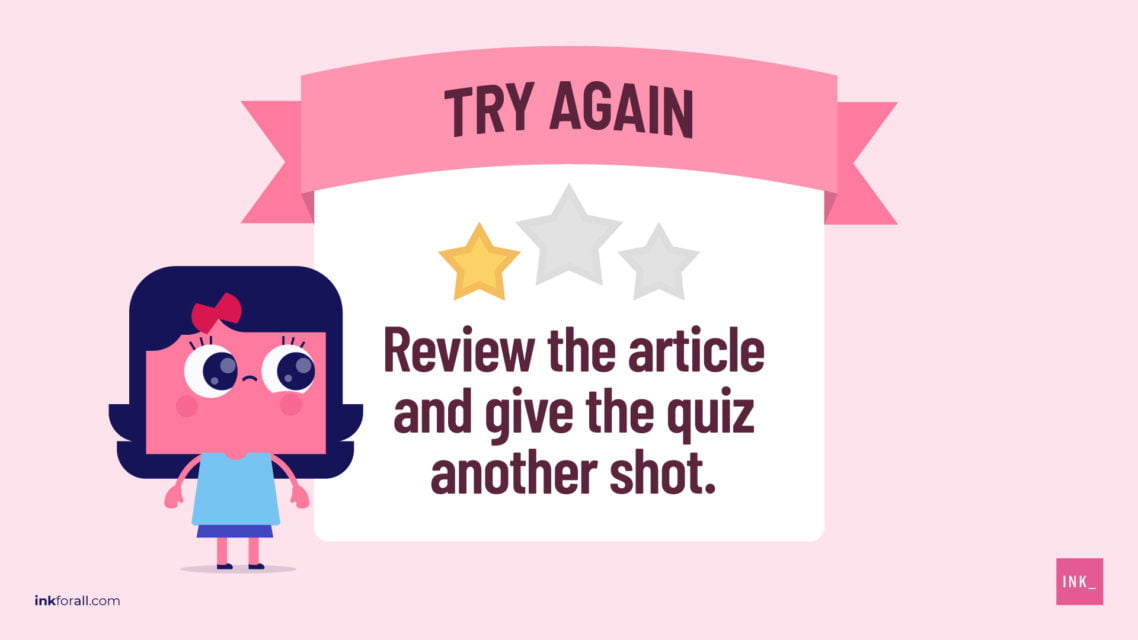Main Copacetic Takeaways:
- Copacetic is an adjective that mostly describes relationships and situations.
- Synonyms include all right, fine, and agreeable.
- Correct pronunciation sounds like koh-puh-SEH-tik.
- It’s an informal word that some Americans and Canadians consider a slang term.
- Copasetic is another popular way to spell this word.
- The phrase “keep it copacetic“ is from the 90s hit “Bound for the Floor.”
Some people mistakenly assume copacetic isn’t a real word, but it’s an adjective that means everything is fine. We’ll dig into a clear copaceticdefinition plus easy examples using this unusual word.
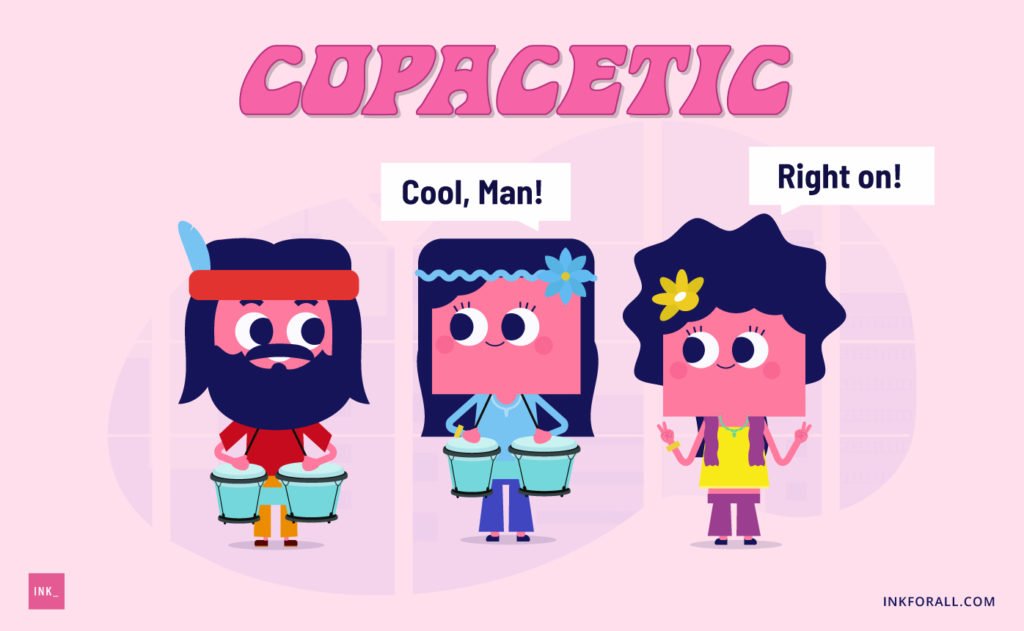

Is Copacetic a Real Word?
Yes, copacetic is a real word. It’s an adjective that means something is very satisfactory or in good order. Although the origin of the term is unclear, it’s believed that copacetic’s been around for at least a century. The first written occurrence of copacetic was in a novel published in the early 1900s.
Some North Americans consider copacetic as a slang word. For this reason, it’s mostly used in informal conversations or situations. What’s more, the most common spelling places a ‘c‘ between the ‘a‘ and ‘e.’ However, some sources consider copasetic with an ‘s‘ acceptable as well.
Two other spellings are available, but they aren’t common or recognized by every dictionary.
What is the Meaning of Copacetic?
Copacetic is an adjective. The Merriam-Webster Dictionary defines it as “very satisfactory.” On the other hand, other dictionaries, like the Oxford English Dictionary, define copacetic as “fine, excellent, going, and just right.”
You can use copacetic where you would use the phrase “all good” or synonyms like “hunky-dory” and “cool.” Most often, people use this slang word to describe relationships. For example, you may say that things are copacetic between you and a partner. Meaning, everything’s just right or fine in your relationship. Situations, moods, and actions can also be described as copacetic.
How Do You Pronounce Copacetic?
Pronounce copacetic like koh-puh-SEH-tik. There are four total syllables but the emphasis goes on the third (“SEH“). It’s tempting to say the beginning like “cop”, but “cope” is correct. When in doubt, remember that the correct pronunciation should rhyme with the word aesthetic (in this way, you could pronounce copacetic like “cope-aesthetic“).
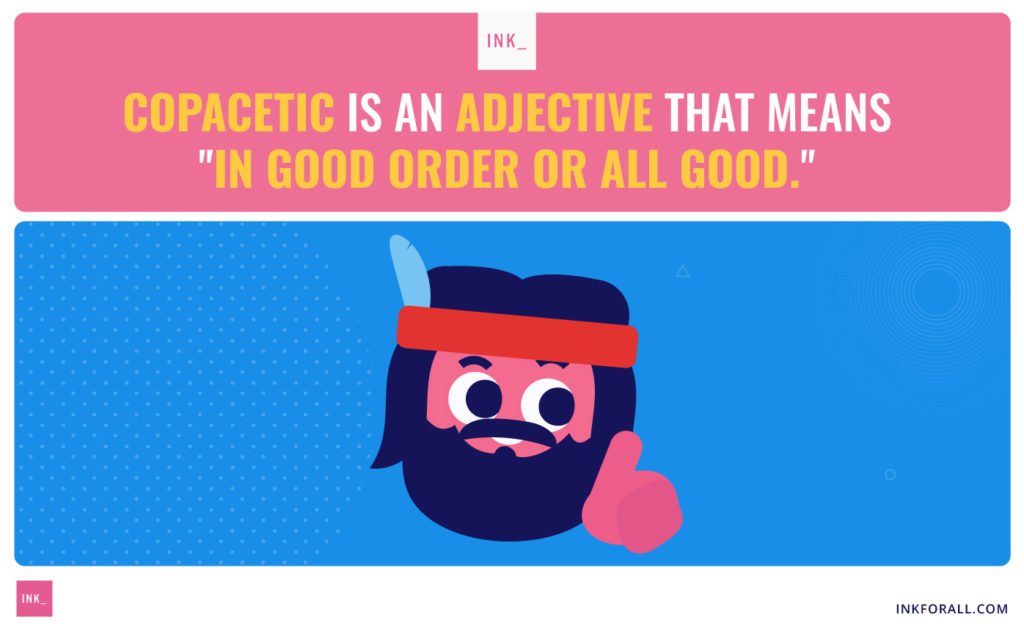

How Do You Use Copacetic in a Sentence?
Here are examples of how to use copacetic in a sentence:
How Do You Use the Word Copacetic?
Use copacetic to describe moods, situations, relationships, terms, or artistic works. This word is an adjective, and you can’t turn it into an adverb by adding -ly. When using copacetic in a sentence, make sure it describes something, such as a relationship or situation.
1. Describe a Mood
When someone feels fine rather than depressed or angry, we can say they are copacetic.
2. Reference a Situation
A situation is copacetic if it’s agreeable, okay, or very satisfactory. Sometimes the media dubs current events copacetic, though the world may not agree.
3. Classify a Relationship
Describe your relationship with someone as copacetic if things are going well. You can use the term for platonic, romantic, family, or business relationships.
4. Explain That Legal Terms are Agreeable
This adjective can describe a legal agreement or similar document. When presented with papers from opposing counsel, a lawyer may say the terms appear copacetic.
5. Describe Music or Other Artistic Works
A beautiful melody may have a copacetic blend of musical notes. You can also describe the colors or textures from a painting as copacetic.
What is the Origin of the Word Copacetic?
Experts can’t agree where copacetic originated. However, it first appeared in the Oxford English dictionary in 1919 and has been in regular use for about a century. Some believe the word originated from southern African-American culture in the 19th century. Others claim the word is a fusion of Italian and African-American slang born in Harlem. Finally, others cite a Cajun-French origin.
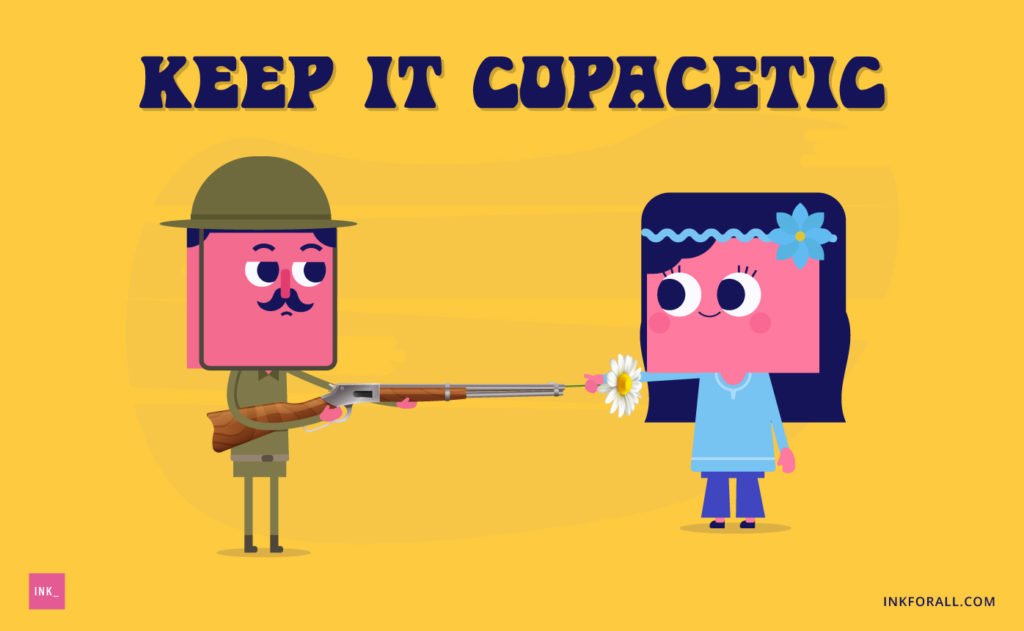

What’s Another Word for Copacetic?
Similar words and synonyms for copacetic include other adjectives like nice, amiable, fine, okay, and agreeable. You could also use phrases like “no worries” and “all good.”
Synonyms for Copacetic:
- Agreeable
- Acceptable
- Okay
- Cool
- Satisfactory
- Good
- Fine
- Okay
- Palatable
- Hunky-dory
What is the Opposite of Copacetic?
The opposite of copacetic is unsatisfactory. Other copacetic antonyms include disagreeable, lousy, unpleasant, and deficient.
What Songs Use the Word Copacetic?
Copacetic makes an appearance in “Bound for the Floor,”“My Stoney Baby,” “West L.A. Fadeaway,” and “Perfection.” However, “Bound for the Floor” often gets the most recognition. This Local H hit was the only song featuring the word copacetic that ever landed on the charts.
When asked about the band’s choice of lyrics, lead vocalist Scott Lucas explained:
I love words that nobody uses anymore.
Lucas said he first heard the word copacetic in old war movies. The song is also a tribute to an album called Copacetic by Velocity Girl.
Take This Short Quiz and Keep it Copacetic 👩🏫
Copacetic Question #1
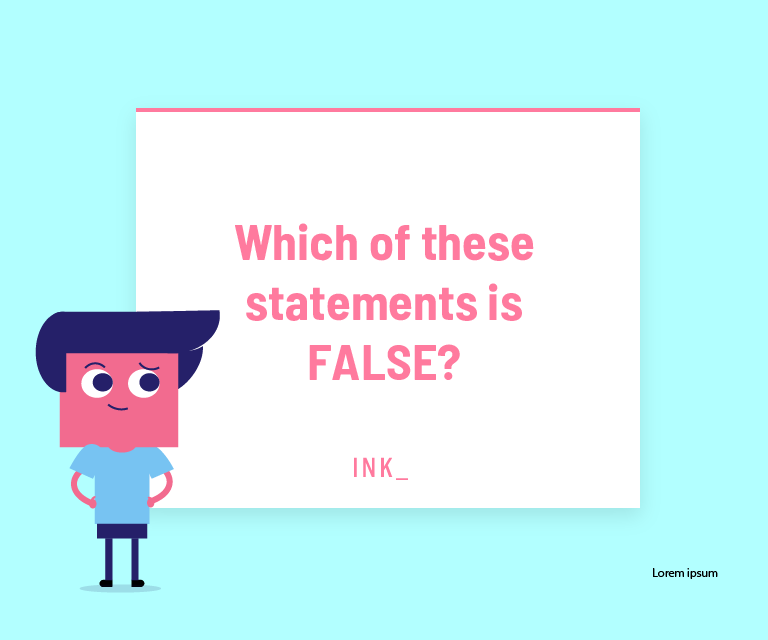

The answer is B. “Copacetic” is a real word that means something is fine, okay, or very satisfactory.
Copacetic Question #2
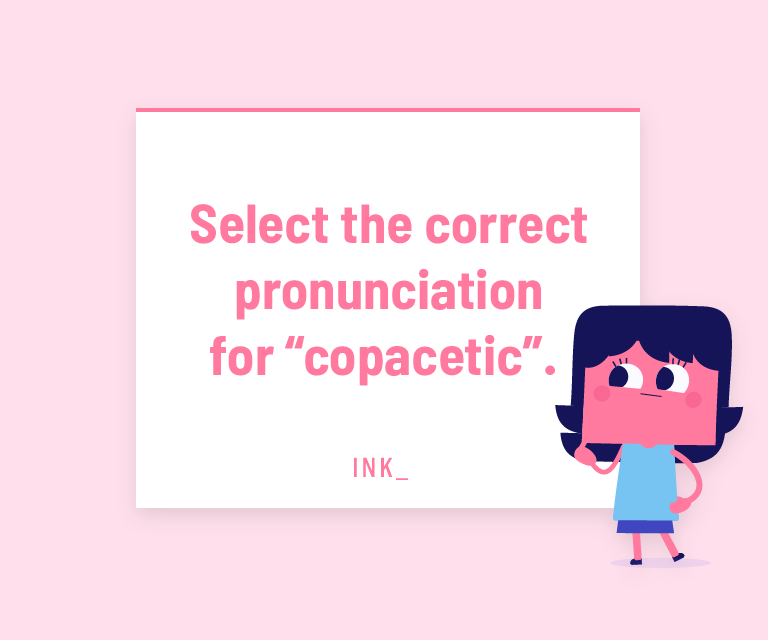

The answer is C. One way to remember is that copacetic somewhat rhymes with “aesthetic.”
Copacetic Means Question #3
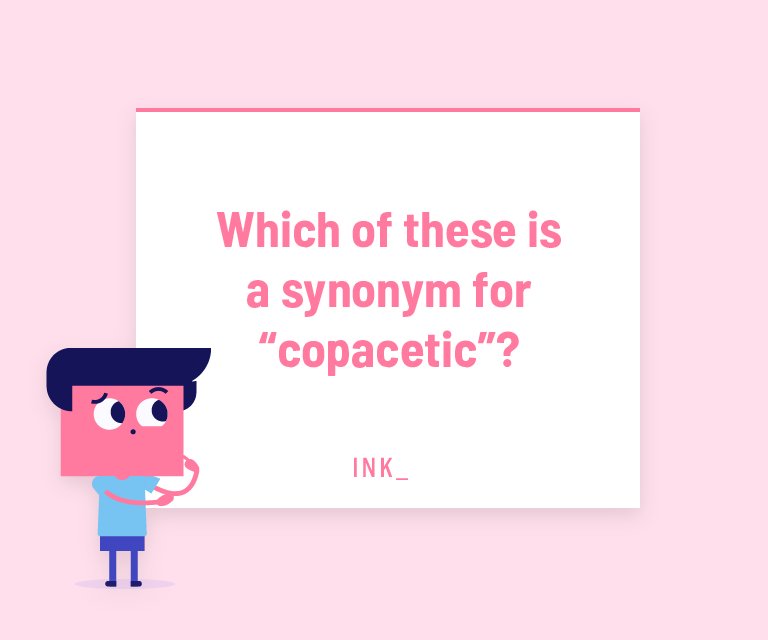

The answer is D. The word “copacetic” can also refer to staying calm.
Copacetic Definition Question #4


The answer is FALSE. “Copacetic” is an adjective, and you can't turn it into an adverb by adding -ly.
Copacetic Question #5
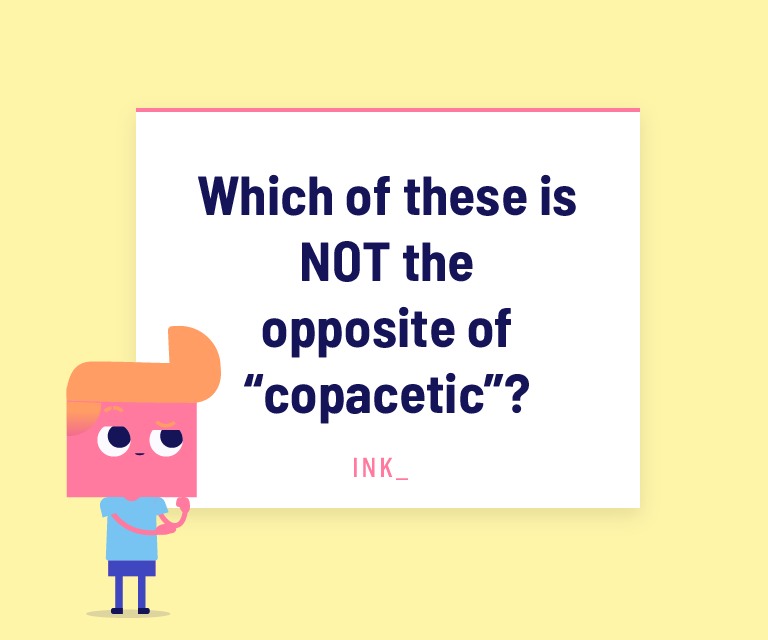

The answer is A. “Hunky-dory” is another word for “copacetic.”




